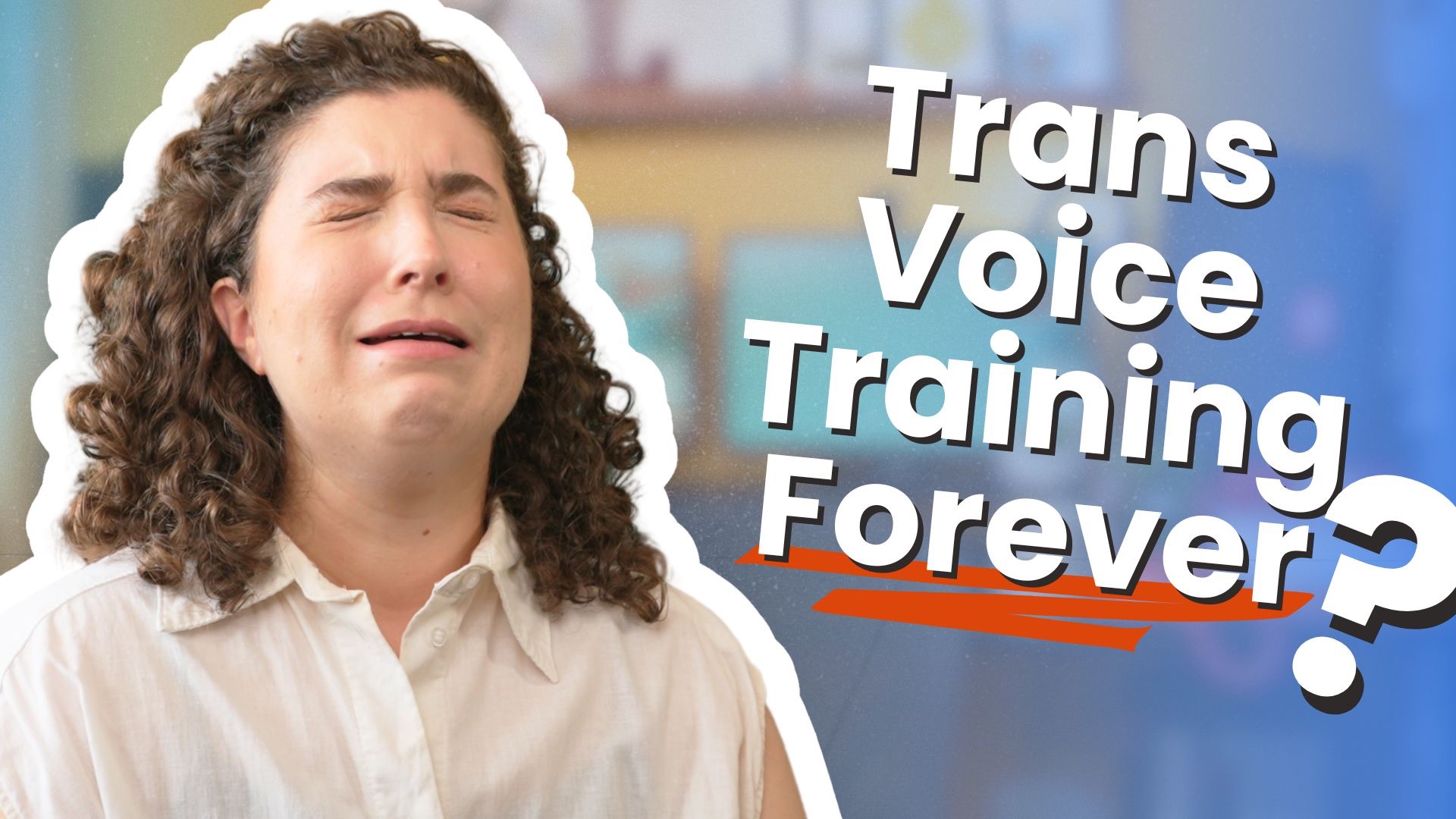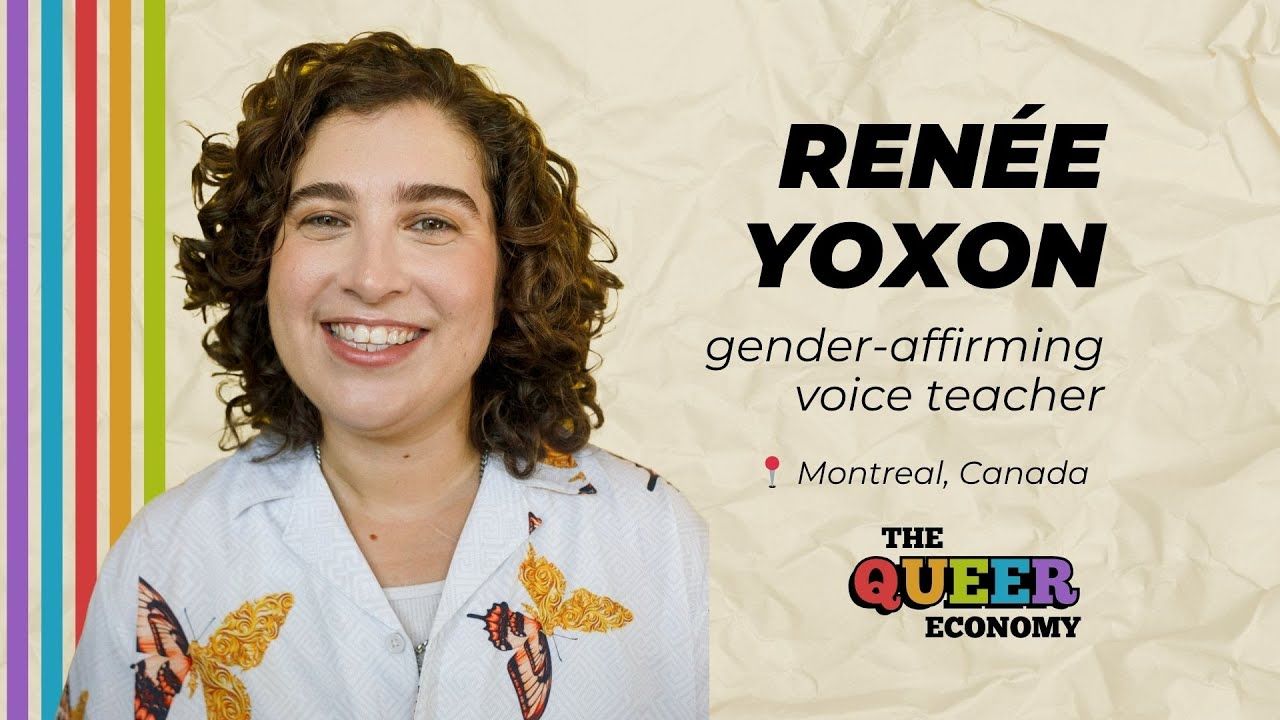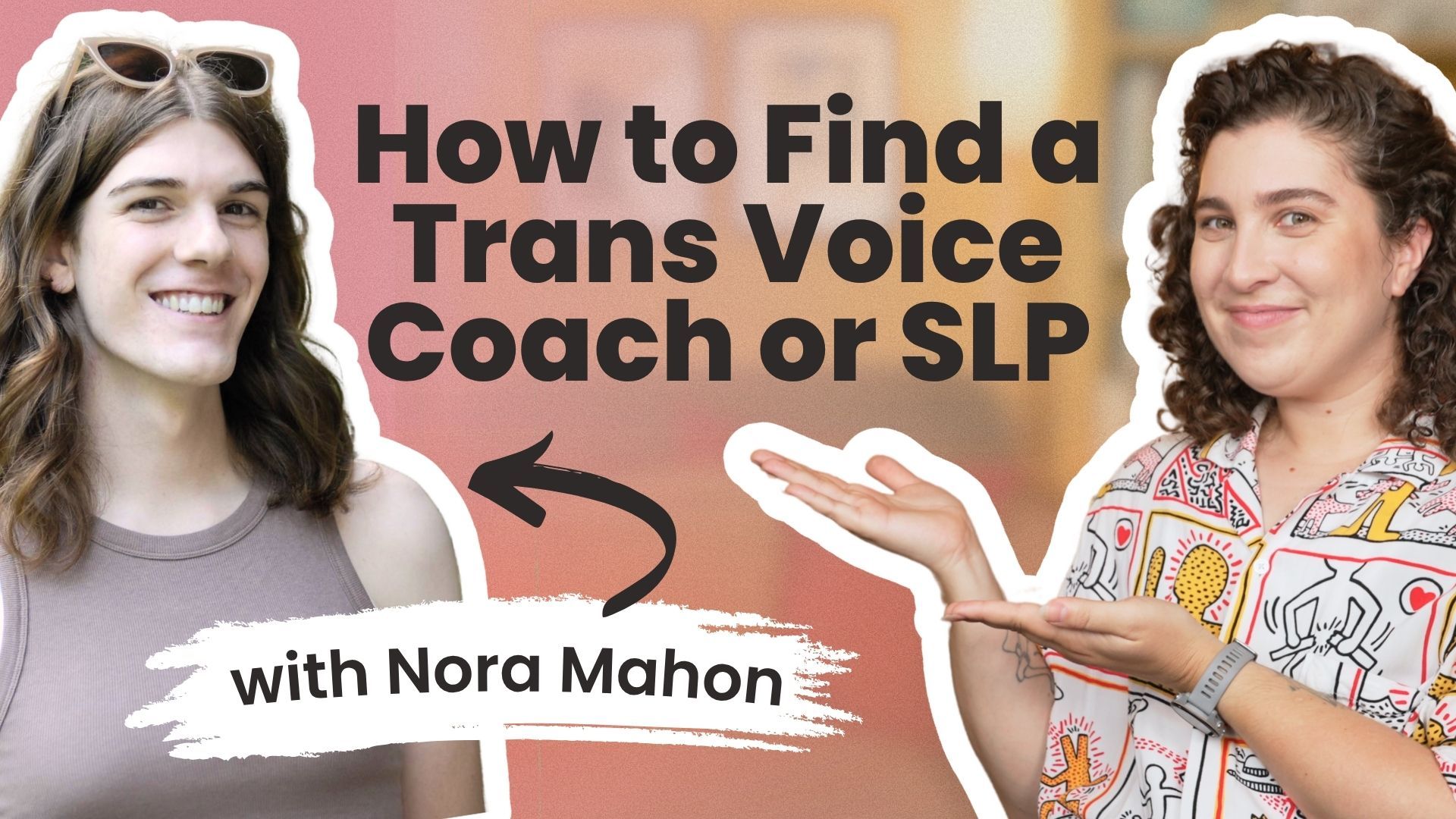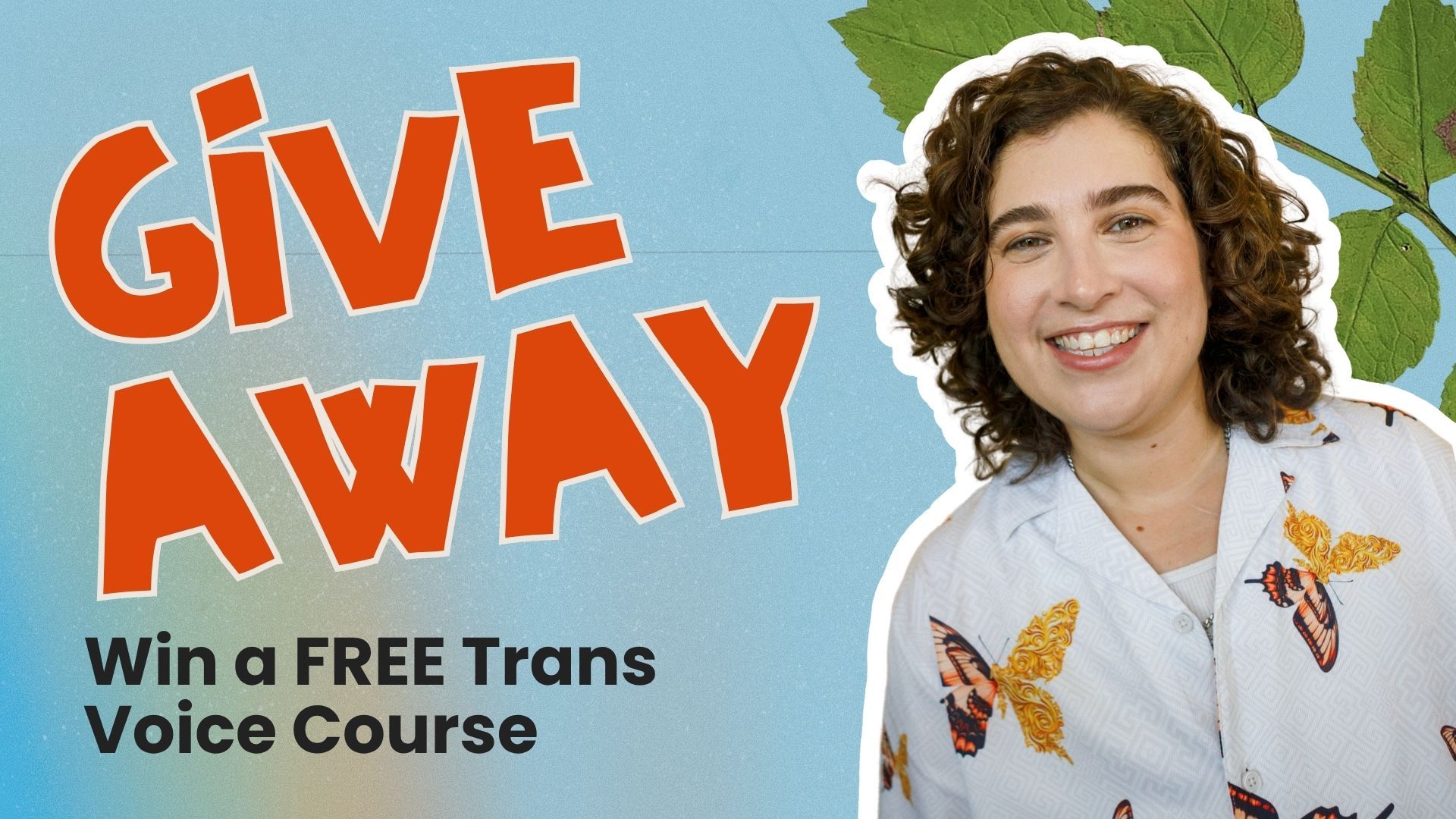Will My New Voice Ever Become My Default?
Jul 10, 2025
Welcome to the first instalment of Voice Qs from Trans Folks Like You—the series where I answer your most common questions about trans voice training. Today, we’re diving into one of the biggest questions I get asked:
“Will my new voice ever become my default?”
You can watch the full video below if you prefer to listen and follow along—just click play! And if you have a question you’d like featured in a future episode, leave a comment on the video. I’d love to hear from you.
Voice Training Can Feel Like Mental Gymnastics
I get it. Voice training can feel like a lot to juggle at first—pitch, resonance, vocal weight, inflection, and all while trying to sound like yourself.
So it’s natural to wonder:
When will this stop feeling like effort? When will this just happen, without me thinking about it?
Let’s unpack that.
Your Voice is a Habit (Yes, Really!)
If you’ve never thought of your voice as a habit before, you’re not alone. Most people experience their voice as something innate, like it’s just a natural part of who they are. But in reality, how you speak is a learned set of muscular patterns.
Think about accents. We learn them from our environment, usually from our parents or caregivers. You weren’t born sounding the way you do now. You practiced that voice, over and over, until it became automatic.
That’s actually great news! Because it means you can learn a new pattern. And with enough repetition, it can become just as automatic.
In The Power of Habit, Charles Duhigg breaks down how our brains form automatic behaviours using a “habit loop”:
- Cue – Something triggers the behaviour
- Routine – You perform the behaviour
- Reward – You feel something positive (even subconsciously), which reinforces the loop
This loop doesn’t just apply to brushing your teeth or tying your shoes. It also governs how we speak, what words we choose, how we say them, and the vocal habits we rely on when we’re not thinking.
🌿 The Jungle Path Metaphor
Let me offer a metaphor I love (thank you to my own voice teacher, Madeleine Palmer, for this one).
Imagine your brain as a dense jungle. Your old voice is a well-worn road through it: easy, familiar, fast.
Now you’re carving a new path that leads to your gender-affirming voice. At first, it’s rough. Hard to find. Easy to get lost. You might even get discouraged and hop back onto the old road.
But every time you walk that new path, it gets a little clearer. A branch gets moved. Some leaves get trampled. And eventually, the new path becomes the default, and the old one fades.
That’s what it means for your new voice to become your habitual voice.
The Effort Spectrum (with Tallulah Breslin)
This ties into something insightful that speech-language pathologist Tallulah Breslin shared with me in our recent interview:
“I think of it as there being these two voices, right? You have this low effort habitual voice, your high-effort voice, and your goal voice. So when I'm not thinking about my voice at all, it's here. When I try to talk in a more feminine way, it's here. And then when I am, um, about what I ultimately want with my goal, it's here. And over time, this low effort and high effort voice shift towards the voice that you want. And at a point that people are satisfied when they're not thinking about their voice. And that when they are thinking about their voice, it's even closer. That's kind of when they graduate themselves and say, I'm done. Yeah. Often as people go through the process, those changes are slow and so they won't realize that their habitual voice has changed and I. only see that if they put in more effort, they're able to get further. And so comparing recordings can be really helpful.”
I love this model because it gives you room to be in process. Your habitual voice might not be where you want it right now, but that doesn’t mean it won’t get there. Changes happen gradually, and you might not even notice until one day… you do.
🧠 The Science of Habit and the Brain
So how does a new voice become automatic?
Let’s look at a story from The Power of Habit. A man named Eugene Pauly lost the ability to form new memories after a brain infection. But even though he couldn’t remember where the kitchen was, he’d still walk there and make breakfast.
Turns out, the part of his brain responsible for memory (the medial temporal lobe) had been damaged. But the basal ganglia (the part responsible for storing habits) was still intact.
The basal ganglia is like your brain’s autopilot. It takes over once something becomes second nature, like driving home or singing your favourite song. Or, in our case, speaking with your trained voice.
This shows us that habit formation doesn’t rely on conscious memory. It relies on repetition.
So no, you’re not faking it. You’re not tricking your brain. You’re just building a stable voice pattern using the same system your brain already uses for everything else.
Final Thoughts: Yes, Your Voice Can Become Your Default
So, will your new voice ever become your default?
Yes.
But not instantly. Not perfectly. And not all at once.
And I know that can be frustrating, especially in a world that expects instant results. But human bodies don’t work that way. Voice training is a slow, consistent process of change, one that rewards patience and practice.
Keep going. Walk the jungle path. One day, it will be the main road.
And your default voice? It will reflect you, not who you were taught to sound like.
💬 Got a Question?
If you’ve got a question you’d like me to cover in a future instalment of Voice Qs from Trans Folks Like You, leave a comment on the video! I read every one.
And if you’d like to get more trans voice tips, resources, and practice prompts delivered straight to your inbox, join my mailing list here.
Thanks for being here.
I’ve been Renée, and I hope this helps.
Want weekly tips, resources, and insights on trans voice training? Sign up for my newsletter and get the latest content delivered straight to your inbox. It's free!








